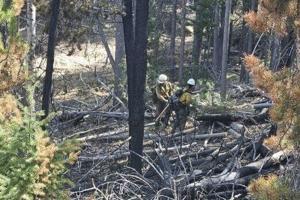POPE Francis has died at the age of 88 after a "complex" battle with double pneumonia. The leader of the Roman Catholic church had been hospitalised at the Gemelli hospital in Rome after suffering a bout of bronchitis - inflammation of the airways that carry air to and from the lungs. 2 Pope Francis had been hospitalised for bronchitis, but then his condition worsened Vatican camerlengo Cardinal Kevin Ferrell announced in a statement: "At 7.
35am this morning , the Bishop of Rome, Francis , returned to the home of the Father. His entire life was dedicated to the service of the Lord and of his Church, Farrell said in the announcement." After being hospitalised for bronchitis on February 14, the Pope's condition worsened.

Doctors changed his treatment for a respiratory tract infection following a "complex clinical situation". It was then confirmed he was suffering from double pneumonia . Read more on pneumonia VAPE HELL Horror X-ray shows mum’s lungs after years of vaping left her permanently scarred 'GAMBLE' 'Chickenpox parties' never a good idea - risk pneumonia and brain swelling disease What is double pneumonia? Double pneumonia, also known as bilateral pneumonia, refers to a lung infection affecting both lungs simultaneously.
The tiny air sacs (alveoli) in both lungs become inflamed and filled with fluid or pus due to infection. While it's not an official medical term, it's a common way to describe pneumonia affecting both lungs. Double pneumonia can potentially lead to more severe symptoms due to the increased lung surface area affected.
Most read in Health DAD'S HEARTACHE I had no idea my wife was slowly bleeding to death after giving birth TRAGIC LOSS Heartbreak as woman, 25, dies after lower back pain misdiagnosed as sciatica CHEW KNEW Gummy supplements that 'build muscle & boost the brain' won't work, tests suggest WEIGH HEY! I weighed 21st after years of partying - now I'm unrecognisable WITHOUT fab jabs But the common symptoms of pneumonia remain the same, regardless of whether one or both lungs are infected. The NHS says symptoms of pneumonia can start suddenly or gradually over a few days. The 4 warning signs of pneumonia And there are nine symptoms to look out for: a cough – you may cough up yellow or green mucus (phlegm) shortness of breath a high temperature chest pain an aching body feeling very tired loss of appetite making wheezing noises when you breathe – babies may also make grunting noises feeling confused – this is common in older people The causes of double pneumonia and single pneumonia are not different.
Both types are caused by the same types of pathogens, including bacteria, viruses, and fungi. Who's most at risk of double pneumonia? 2 Adults over 65 are more likely to develop double pneumonia Credit: Getty Double pneumonia is more likely to develop in certain individuals due to factors like age, pre-existing health conditions, and weakened immune systems - specifically, babies under two and adults over 65, due to developing or weakening immune systems. Individuals with lung diseases like COPD , asthma, or cystic fibrosis , or those with chronic illnesses like heart failure , are also more susceptible.
And anyone with a weakened immune system, whether due to medication, illness, or other factors, is at increased risk. With appropriate treatment, most people with double pneumonia can make a full recovery. If the pneumonia is caused by bacteria, antibiotics are typically prescribed to treat the infection.
However, the severity of the pneumonia, underlying health conditions, and the timeliness of treatment can influence the outcome. Read more on the Scottish Sun LEGEND'S VOW I'm nearly 80 and toured for 60 years - I'd rather die on stage than retire 'SHOCK' Customers fear they've lost thousands as Scots tourist attraction closes suddenly Individuals with severe pneumonia or those who don't improve with treatment at home may need to be hospitalised for closer monitoring and more intensive care. It's essential to seek prompt medical attention if you suspect you have pneumonia, especially if you have difficulty breathing or a high fever.
When to call 999 If: you're struggling to breathe – you're choking, gasping and unable to speak you have pale, blue or blotchy skin, lips or tongue you suddenly feel confused – for example, you do not know where you are you cannot wake your baby and they feel floppy Source: NHS.
Health

The 9 symptoms of double pneumonia as Pope Francis dies, aged 88, after battle with condition
















